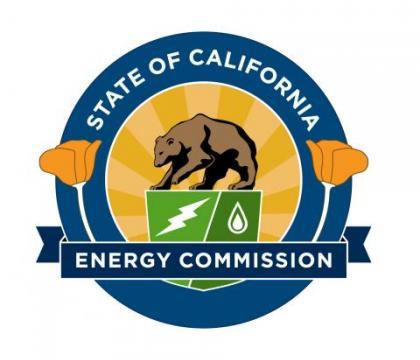2025 Shultz Energy Fellowships: California Energy Commission, Energy Research & Development Division (ERDD)
Regional-, state-, and city-level efforts are essential in our fight against climate change, especially in the field of energy. Stanford University is committed to helping by integrating its students into energy and climate ecosystems in the West through the Shultz Energy Fellowships program, an energy-related summer fellowship program for undergraduate and graduate students.
Named in honor of former Secretary of State George P. Shultz, one of the most widely admired American public servants of the past half-century, the program offers a suite of paid, energy-related public service fellowships for Stanford students in California, Colorado, Hawai'i, Nevada, and Utah during the summer.
You will be one of two Stanford students placed at the California Energy Commission (CEC); and will be with the Energy Research & Development Division (ERDD). The fellowship runs from Monday, June 23, 2025 to Friday, August 29, 2025.
Organization/Agency mission or role in state government
The California Energy Commission is the state’s primary energy policy and planning agency. Created by the Legislature in 1974 and located in Sacramento, the California Energy Commission has seven core responsibilities:
- Forecast future energy demand (electricity and natural gas) to assist in planning California’s energy infrastructure;
- Promote energy efficiency by developing, implementing and enforcing the state’s appliance and building energy efficiency standards, encouraging energy efficiency upgrades in existing buildings and implementing the California Clean Energy Jobs Act (Proposition 39);
- Certify and issue environmental permits for thermal power plants 50 megawatts and larger;
- Invest in energy research, development, demonstration, and technology commercialization;
- Support renewable energy development by providing incentives for solar photovoltaic systems on new residential buildings and new geothermal facilities, and implementing the Renewable Portfolio Standard (RPS) in collaboration with the California Public Utilities Commission;
- Develop and deploy low-carbon alternative fuels and advanced vehicle technologies and infrastructure; and
- Plan for and direct state response to energy emergencies in close partnership with the California Office of Emergency Services.
Potential Projects
The CEC’s Energy Research & Development Division (ERDD) deploys approximately $250 million annually to advance technology innovation and research supporting the state’s clean energy and climate goals, including in the areas of renewable energy supply, building and industrial decarbonization, sustainable transportation, energy storage, energy distribution, resilience and reliability, and carbon management. Within ERDD, the Sustainability and Health Team oversees a portfolio of research that develops strategies and technologies that advance California's transition to a climate-resilient, equitable, and sustainable zero-carbon energy future.
To support these efforts, a summer fellow will have the opportunity to work with the Sustainability and Health Team to develop a project that advances one of the following project focuses:
- Evaluating opportunities to make interval meter data accessible for policy-relevant analysis and/or conducting preliminary analysis to inform equity and affordability in California’s transition to zero-carbon energy.
- Analysis that leverages data from the Cal-Adapt: Analytics Engine to inform planning and investment in a resilient, zero-carbon energy system, e.g., integration of climate projections into demand forecasts and analysis to illuminate changes in zero-carbon electricity generation.
- Analysis of data presented in the CEC funded gas decommissioning data-driven tool to identify clusters of promising sites for decommissioning in the state and determine how those clusters relate to ongoing gas decommissioning policy.
Work Environment
The fellow will have the option to work partially remote or fully remote.
Potential Mentors
- Mike Mastrandrea, Chief Advisor for Energy and Climate Research
- Susan Wilhelm, Supervisor of the Sustainability and Health Team
- Sustainability and Health Team Subject Matter Experts
2024 CEC Fellows
- Claire Petersen, Environment and Resources (E-IPER), PhD '28, Office of Commissioner Andrew McAllister
- Adri Kornfein, Electrical Engineering, BS '25, Office of Commissioner Noemí Gallardo
- Learn more about Claire and Adri's experiences:
Desired Skills
- Coursework or experience in climate and energy policy.
- Experience with data analysis; familiarity with Python, JupyterHub, and GitHub; or with ArcGIS is desirable.
- Strong research and analytical skills and ability to make well-supported recommendations for planning and decision-making.
- Ability to communicate effectively and relay complicated information in a simple, consumer-friendly manner.
- Excellent interpersonal, organizational, and communication skills (both written and oral).
All Shultz fellows must be enrolled in the spring quarter before their fellowship.
All Shultz fellows must take a one-unit spring workshop course, 'Energy Policy in California and the West' taught by Professor Bruce Cain and Visiting Fellow Felicia Marcus that will provide an in-depth analysis of the role of California state agencies, the Western Interstate Energy Board, and the Western Electricity Coordinating Council in driving energy policy development, technology innovation, and market structures. Course number is CEE 263G / POLISCI 73 / PUBLPOL 73 / ENERGY 73. Schedule: Wednesdays from 1:30 pm - 2:50 pm.
Please note that this opportunity is for graduate students. Interested undergraduates can apply via SIG.
